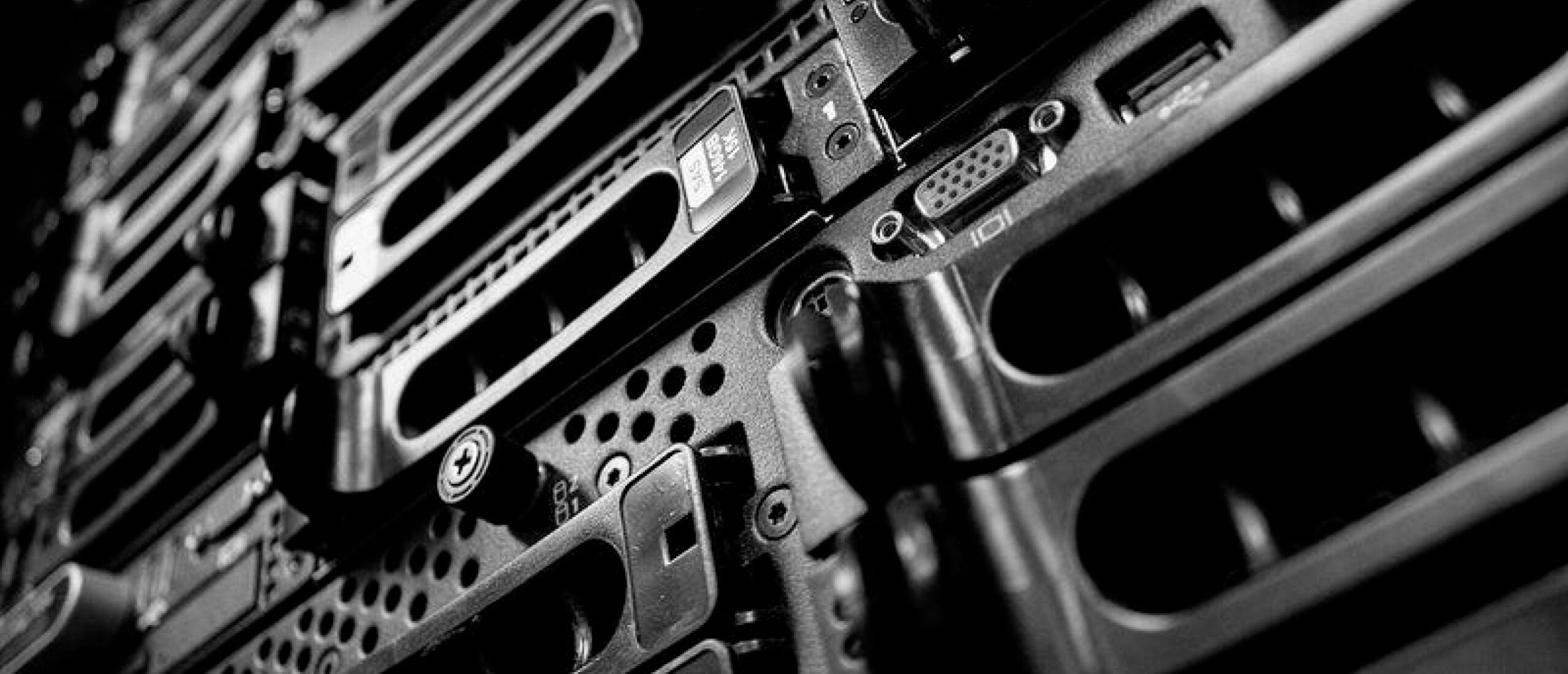Introduction
Definition of AI
Artificial Intelligence (AI) refers to the simulation of human intelligence in machines that are programmed to think and learn like humans. It involves the development of computer systems that can perform tasks that would normally require human intelligence, such as speech recognition, decision-making, problem-solving, and language translation. AI has become a prominent field of study and research, with numerous applications in various industries. It has the potential to revolutionize the way we live and work, but it also comes with its own set of disadvantages.
Importance of AI
The importance of AI cannot be overstated in today's rapidly advancing technological landscape. AI has the potential to revolutionize various industries, including healthcare, finance, and transportation. One of the key advantages of AI is its ability to automate tasks, saving time and increasing efficiency. Additionally, AI can analyze vast amounts of data and provide valuable insights, enabling businesses to make more informed decisions. Moreover, AI-powered technologies such as virtual assistants and chatbots have improved customer service experiences by providing instant and personalized support. Overall, AI plays a crucial role in driving innovation and improving productivity, making it an indispensable tool in the modern world.
Overview of AI applications
Artificial Intelligence (AI) has revolutionized various industries with its wide range of applications. From healthcare to finance, AI has proven to be a game-changer in automating processes, enhancing decision-making, and improving overall efficiency. In healthcare, AI is being used for diagnosing diseases, predicting patient outcomes, and developing personalized treatment plans. In finance, AI is being utilized for fraud detection, risk assessment, and algorithmic trading. The applications of AI are vast and continue to expand, making it a crucial technology in today's fast-paced world.
Disadvantage 1: Job Displacement

Automation of tasks
Automation of tasks is one of the key advantages of AI, but it also comes with its fair share of disadvantages. One of the main drawbacks is the potential loss of jobs. As AI technology advances, more and more tasks can be automated, leading to a decrease in the demand for human workers. This can result in unemployment and economic inequality. Additionally, there are concerns about the ethical implications of relying too heavily on AI for decision-making. AI systems are only as good as the data they are trained on, and biased data can lead to biased outcomes. Furthermore, the complexity of AI algorithms makes it difficult to fully understand and explain their decision-making processes, which can raise concerns about accountability and transparency. Lastly, there is the risk of AI systems being hacked or manipulated, which can have serious consequences in areas such as healthcare or finance. Despite its benefits, the automation of tasks through AI comes with these significant disadvantages that need to be carefully considered and addressed.
Unemployment
Unemployment is one of the major concerns associated with the widespread adoption of AI. As AI technology continues to advance and automate various tasks, there is a growing fear that it will lead to job displacement and unemployment for many individuals. With AI systems being able to perform complex tasks with high accuracy and efficiency, there is a risk that human workers will be replaced by machines and algorithms. This can result in a significant loss of jobs across various industries, leading to economic instability and social challenges. Additionally, the skills required to work alongside AI systems may be different from traditional job requirements, making it difficult for some individuals to adapt and find new employment opportunities. Therefore, it is crucial for policymakers and organizations to address the potential impact of AI on unemployment and develop strategies to mitigate its negative effects.
Impact on specific industries
AI has a significant impact on specific industries, revolutionizing the way businesses operate. In the healthcare sector, AI technology enables faster and more accurate diagnoses, improving patient outcomes. In the manufacturing industry, AI-powered robots and automation systems enhance productivity and efficiency. AI also plays a crucial role in the financial sector, where it is used for fraud detection and risk assessment. However, the integration of AI in industries also presents challenges. It may lead to job displacement and the need for upskilling the workforce. Additionally, concerns about data privacy and security arise due to the vast amount of sensitive information AI systems handle. Despite these challenges, the potential benefits of AI in specific industries are undeniable, and organizations must carefully navigate the impact of AI to maximize its advantages while mitigating its disadvantages.
Disadvantage 2: Lack of Creativity

Limitations in generating new ideas
One of the limitations of AI is its inability to generate new ideas. While AI is incredibly efficient at processing and analyzing existing data, it lacks the creativity and intuition required to come up with original concepts. This is because AI algorithms are based on patterns and rules derived from past data, rather than the ability to think abstractly or imagine new possibilities. As a result, AI systems may struggle to think outside the box or generate innovative solutions to complex problems. This limitation can be particularly challenging in fields that require novel ideas and creative thinking, such as art, invention, and entrepreneurship.
Inability to understand emotions
One of the major disadvantages of AI is its inability to understand emotions. While AI systems are highly advanced in terms of processing and analyzing data, they lack the ability to comprehend human emotions. This limitation hinders their ability to effectively interact and communicate with humans in a natural and empathetic manner. As a result, AI systems may struggle to understand and respond appropriately to emotional cues, leading to potential misunderstandings or misinterpretations. This drawback poses challenges in various fields where emotional intelligence is crucial, such as customer service, healthcare, and interpersonal relationships. Efforts are being made to develop AI systems that can better understand and respond to human emotions, but overcoming this limitation remains a significant hurdle in the advancement of AI technology.
Lack of intuition
One of the major disadvantages of AI is the lack of intuition. While AI systems can process and analyze vast amounts of data, they lack the human ability to understand context, make intuitive judgments, and consider emotions. This limitation can be particularly problematic in situations where human intuition is crucial, such as in creative fields like art and music or in complex decision-making processes. Without intuition, AI systems may struggle to accurately interpret ambiguous information or respond appropriately to nuanced situations. Additionally, the lack of intuition can hinder AI's ability to empathize with humans and understand their needs, leading to potential misunderstandings or ineffective interactions. Overall, the absence of intuition in AI technology remains a significant challenge that needs to be addressed in order to fully harness its potential.
Disadvantage 3: Ethical Concerns

Privacy issues
Privacy issues are one of the major concerns associated with AI. As AI systems collect and analyze vast amounts of data, there is a potential risk of unauthorized access and misuse of personal information. This can lead to breaches of privacy and the exposure of sensitive data. Additionally, AI algorithms can sometimes make incorrect assumptions or predictions about individuals, leading to biased or discriminatory outcomes. It is crucial to address these privacy issues and implement robust security measures to protect user data and ensure transparency and accountability in AI systems.
Bias in decision-making
Bias in decision-making is one of the prominent disadvantages of AI. As AI systems are trained on historical data, they can inadvertently inherit the biases present in that data. This can lead to discriminatory outcomes and reinforce existing societal inequalities. For example, if an AI system is trained on data that is biased against certain racial or ethnic groups, it may make decisions that disproportionately harm those groups. Addressing bias in AI is a complex challenge that requires careful consideration of data collection, algorithm design, and ongoing monitoring and evaluation.
Unpredictability of AI behavior
The unpredictability of AI behavior is one of the significant disadvantages of AI. As AI systems become more advanced and complex, their decision-making processes can become difficult to understand and predict. This unpredictability poses challenges in various fields, such as finance, healthcare, and autonomous vehicles. The lack of transparency in AI algorithms and the potential for biased or erroneous outcomes raise concerns about the reliability and fairness of AI systems. Moreover, the unpredictable behavior of AI can lead to unexpected consequences and unintended actions, which can have serious implications in critical situations. Therefore, addressing the unpredictability of AI behavior is crucial to ensure the safe and ethical use of AI technology.
Disadvantage 4: Dependence on Technology

Reliance on AI systems
Reliance on AI systems is one of the major disadvantages of AI. As we increasingly depend on AI for various tasks, there is a growing concern about the potential risks and limitations associated with this reliance. One of the main issues is that AI systems can be prone to errors and biases, which can have significant consequences in critical areas such as healthcare, finance, and transportation. Moreover, the overreliance on AI can lead to a loss of human skills and expertise, as individuals become less capable of performing tasks that were once their domain. It is important to strike a balance between the benefits and drawbacks of AI to ensure that we do not become overly dependent on these systems and maintain the human element in decision-making processes.
Vulnerability to system failures
Vulnerability to system failures is one of the key disadvantages of AI. As AI systems become more complex and interconnected, they become more susceptible to failures and malfunctions. A single glitch or error in the system can have significant consequences, leading to incorrect decisions or actions. Moreover, AI systems heavily rely on data and algorithms, and any flaws or biases in these components can further amplify the vulnerability to system failures. This vulnerability poses challenges in critical domains where AI is used, such as healthcare or autonomous vehicles, as it raises concerns about the reliability and safety of these systems.
Loss of critical thinking skills
Loss of critical thinking skills is one of the major disadvantages of AI. As machines become more advanced and capable of performing complex tasks, humans may rely too heavily on them and neglect their own cognitive abilities. This over-reliance on AI can lead to a decline in critical thinking skills, as individuals may become less inclined to question information or think critically about problems. Additionally, AI algorithms are designed to optimize for efficiency and accuracy, often sacrificing the exploration of alternative perspectives or creative problem-solving. As a result, the ability to think critically and independently may be diminished in a society that heavily relies on AI.
Disadvantage 5: Security Risks

Cybersecurity threats
Cybersecurity threats have become a major concern in the era of artificial intelligence (AI). As AI continues to advance and become more integrated into various industries, it also presents new vulnerabilities and risks. One of the main disadvantages of AI is the potential for increased cyber attacks. AI systems can be targeted by hackers who exploit weaknesses in the technology to gain unauthorized access to sensitive data or disrupt critical systems. Additionally, AI-powered cyber attacks are becoming more sophisticated, making it even more challenging for organizations to defend against them. Therefore, it is crucial for businesses and individuals to prioritize cybersecurity measures and invest in robust defenses to mitigate the risks associated with AI.
Potential for hacking
The potential for hacking is one of the significant disadvantages of AI. As AI systems become more advanced and integrated into various aspects of our lives, they also become more vulnerable to cyber attacks. Hackers can exploit weaknesses in AI algorithms and systems to gain unauthorized access, steal sensitive data, or manipulate AI-powered technologies for malicious purposes. This poses a serious threat to privacy, security, and the overall trust in AI systems. It is crucial for developers and organizations to prioritize cybersecurity measures and continuously update and strengthen AI systems to mitigate the risks associated with hacking.
Manipulation of AI systems
One of the major concerns regarding AI is the potential for manipulation of AI systems. As AI becomes more advanced and integrated into various aspects of our lives, there is a risk that it can be exploited for malicious purposes. For example, AI algorithms can be manipulated to spread misinformation, manipulate public opinion, or even carry out cyberattacks. This manipulation of AI systems raises ethical and security concerns, as it can have far-reaching consequences on society. It is crucial to address these issues and develop safeguards to ensure the responsible and ethical use of AI technology.





